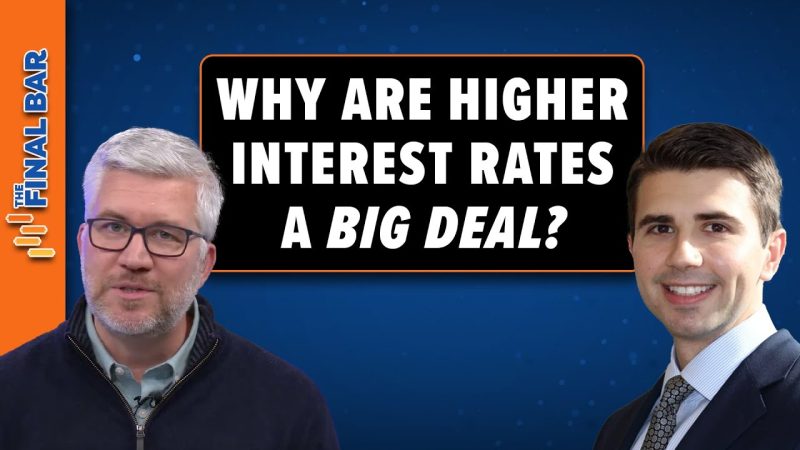Interest rates are incredibly important for the financial markets and for businesses around the world. They have a significant impact on the economy, and changing interest rates can cause tremendous fluctuations in stock markets and businesses. Therefore, it is necessary to understand why higher interest rates are a big deal for the economy.
Interest rates essentially represent the cost of borrowing from a lender. When interest rates are lowered, it reduces borrowing costs and encourages people to invest in the stock market and purchase homes. This can cause the stock market to experience a rise and often stimulates economic growth. On the other hand, higher interest rates make borrowing more expensive, thereby discouraging people from taking out loans and investing in the stock market.
Higher interest rates can also have a detrimental effect on businesses, as higher borrowing costs can make it difficult for businesses to finance their operations. Firms need to borrow money to buy equipment, expand their operations, and develop new products. High interest rates can lead to businesses not being able to borrow the capital they need, and this can impede potential growth.
In addition, higher interest rates can also cause a decrease in consumer spending. When interest rates increase, the cost of borrowing for consumers rise, as will their monthly loan payments to banks and other lenders. This causes people to have less money available for discretionary spending, as more of their funds are being diverted towards debt payments. This can ultimately lead to a decrease in consumer spending and cause economic stagnation.
While higher interest rates can be beneficial in controlling inflation and strengthening a country’s currency, they also pose risks to businesses and consumers. Higher interest rates can cause an increase in borrowing costs and consequently make it difficult for businesses to expand their operations. This can lead to a decrease in consumer spending and act as a drag on economic growth. Therefore, it is important to consider the effects of higher interest rates on the economy before making any changes.

